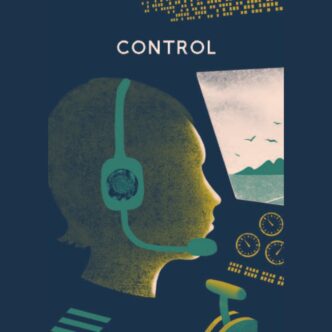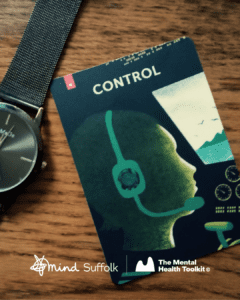How to meet your need for Control
We all have 12 physical and emotional needs which must be met for us to stay well, and a set of skills and resources we’re born with to help us meet those needs. We call this understanding the Emotional Needs & Resources approach.
One of those needs is Control. To meet the need for Control, we need to feel that we have some say over our lives and personal choices. A healthy way to meet the need for control is to recognise what we can take personal responsibility for and what we can influence and accept that there are some things which we cannot control.
Jo Flack, Trainer of The Mental Health Toolkit by Suffolk Mind, shares her story and some tips on how to meet your need for Control.
Several years ago, when I was suffering with anxiety, a therapist I was working with referred to me as a ‘control freak’.
Perhaps not the most professional, appropriate or empowering terminology to use but she did have a point. I am very aware that I have a tendency towards needing a high level of control. And I’m not alone – the need for control, to have autonomy and a say over our lives, is a deep-rooted need we all share.
But like all our emotional needs it should be met in balance. That means accepting that there will always be some things that are beyond our control, such as the weather, or time.
I know all too well how we can get into difficulties when we try to control everything. My attempt to control my environment to an unhealthy degree led me to become seriously unwell with Obsessive Compulsive Disorder (OCD).
People affected by OCD experience a combination of obsessive thoughts and compulsive behaviours. The obsessive thoughts are fuelled by anxiety and focused on things which might go wrong in the future.
The compulsive behaviours are actions which seek to prevent those things from happening. Sometimes people only experience the obsessive thoughts, which is called Pure ‘O’ OCD.
My experience of OCD began as a reasonably rational dislike of ‘dirty’ things but evolved into a situation where I was attempting to sanitise my entire environment through ritualistic cleaning of myself, my possessions and spaces I inhabited.
So, it is crucial to recognise that there are things beyond our control that we need to accept.
We might not like them, but we will not meet our need for control in a healthy way if we do not accept that some things are uncontrollable.
By accepting the things we cannot change and focusing on the things we can have an element of control over, we can help meet our need for control in a healthy balance. For example, although we cannot control the news, we can all do our bit to help control how much news we take in – such as turning off notifications on our phones, or avoiding the bulletins on TV.
For those who find their OCD symptoms worsening, take notice of what you’re thinking, label them as ‘OCD thoughts’ and try your very best to avoid giving in to the urge to control.
Here are some tips that may be helpful to meet our need for control:
- Accept the things you can’t control. This includes other people’s behaviour. It can be challenging to accept that other people’s behaviour is not ours to control, but it helps to remember that behaviour is an attempt to meet needs, whether healthy, or otherwise.
- You are in control of your exposure to media content that might ramp up worry, so you can choose to give your attention elsewhere.
- Some people find getting into a regular routine helps meet the need for control and the need for security. We feel safer when we feel in control of our day-to-day life.
And finally, remind yourself when you need to that it is enough to do the best you can.
Updated January 2024











